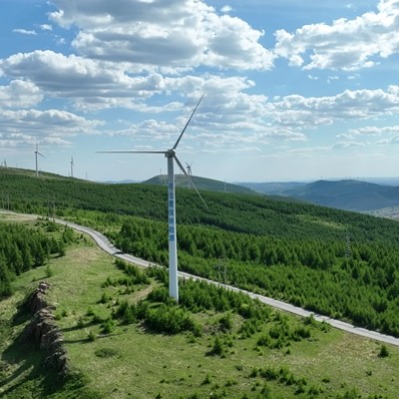



The fusion of agrarian and nomadic cultures in Zhangjiakou, Hebei province, where 900,000 hectares of grassland intermingle with farmland on the border with the Inner Mongolia autonomous region, has made the protection of the grassland ecosystem a key priority.
Northwest of Beijing, Zhangjiakou's abundant grassland and its Grass Skyline, acclaimed as one of the 10 most beautiful highways on the Chinese mainland, attract millions of tourists a year.
But grassland is not only for admiring. More importantly, it carries crucial ecological functions.
"Grasslands are the production homeland of herdsmen," said China Agricultural University grassland expert Wang Kun, who is vice-chairman of the Chinese Grassland Society. "They are also a genetic repository, serving as the foundation for the entire ecosystem of our country and the Earth's ecological balance.
"Furthermore, grasslands play vital roles in water conservation, soil retention, windbreaks and sand fixation, serving as a natural barrier and green Great Wall in the northwest region of China."
Wang based himself in Zhangjiakou's Guyuan county in 1985, and established the National Field Scientific Observation Research Station for Grassland Ecosystem there 20 years later. Over the past 40 years, more than 200 master's and doctoral students have engaged in research related to grassland protection in Guyuan, producing numerous significant scientific achievements that have made important contributions to grassland conservation worldwide.
"When the cultivated agricultural land area exceeds 40 percent, the grassland ecosystem will be damaged," Wang said. "Through our years of research and observation, we have found that when the cultivated land area is between 30 to 40 percent, the ecosystem can be kept relatively healthy."
Due to reasons such as overgrazing, around 90 percent of China's grasslands degraded several decades ago, making the restoration of saline-alkali land an important topic in grassland protection, Wang said.
After more than a decade of experiments at the Guyuan research station, Wang and his team discovered effective methods, identifying suitable grass species for pasture restoration and developed over 100 patented technologies.
"In the past, improving salinealkali land mainly relied on engineering methods, which couldn't address the issue of excessive salt content in the soil," he said. "Therefore, we chose to plant salt-tolerant plants, especially salt-absorbing plants, to reduce the salt content of the saline-alkali land."
Wang's team has also improved corn into a forage variety with a yield of up to 150 metric tons per hectare, which is 10 to 20 times higher than other grass crops.
"This effectively helps herdsmen feed their sheep and cows, without damaging the natural grassland," Wang said.
The methods have been successfully validated in Zhangjiakou and are being promoted nationwide, with over a dozen provinces and regions engaging in similar work.
As summer approaches, sheep grass over a meter tall can be seen everywhere in Zhangjiakou, as high-quality pastures recover.
"Once again, we can see the picturesque scene of cows and sheep grazing in the grassland," Wang said. "Forests are the lungs of the Earth, while grasslands are its skin."
Wang said China has a grassland area close to 300 million hectares, accounting for around 30 percent of the country's land area and making it the country with the largest natural grassland area in the world.
The promulgation of China's first Grassland Law 39 years agoon June 18, 1985 — led to the designation of June 18 as Grassland Conservation Day.
"The Grassland Law has guided the development of grassland protection construction toward a path where laws are relied upon and adhered to," Wang said. "The Grassland Conservation Day initiated by the Chinese Grassland Society aims to raise awareness among people to protect and develop grasslands."
Wang Ruiyuan contributed to this story.
yandongjie@chinadaily.com.cn
If you have any problems with this article, please contact us at app@chinadaily.com.cn and we'll immediately get back to you.